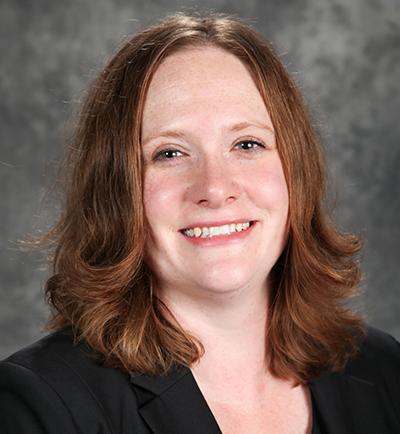Faculty Spotlight: Emily Sellars

Dr. Emily Sellars is always looking for the next challenge. Right now, it’s teaching quantitative methods to the less than willing.
“I really enjoy the challenge of teaching quantitative methods to people who really don’t like it,” Sellars said of the seminar-based quantitative methods courses she teaches at the Bush School of Government and Public Service at Texas A&M University. “I love feeling like I can give my students the tools they need to be intelligent consumers of quantitative research and do good work in their fields.”
Sellars joined the Bush School in August 2016 as a member of the international affairs faculty after spending a year as a postdoctoral scholar at the Harris School of Public Policy at the University of Chicago. She earned a joint PhD in political science and agricultural and applied economics at the University of Wisconsin-Madison. Sellars was drawn to the Bush School by the interdisciplinary background of the faculty members as well as the School’s other impressive characteristics.
“It’s a place where asking good questions and doing interesting research is the focus,” Sellars said. “I get to work directly with students who want to go into public service careers and help them find the tools they need to succeed, and I get to do research that is relevant for policy.”
Prior to her academic career, Sellars served as a business development volunteer in Honduras with the Peace Corps and gained a “focal point” for her future research. She worked in a small town in the northwest corner of the country, where many of the men had left to work in the United States. This experience piqued her interest in migration.
“I started thinking about how large-scale emigration impacts the local economy and political institutions of the areas people leave from,” Sellars said. “When thinking about the social impacts of migration, we often think first about areas that receive migrants, but there are important effects in sending areas as well.”
Dr. Sellars is currently working on several related projects on the impacts of emigration on political institutions and civil unrest in Mexico and other developing countries. She also teaches a new seminar on the economics and politics of migration in the Department of International Affairs. The course serves as an introduction to current research and policy debates about immigration and emigration.
“We hear a lot about migration in the news, particularly US-Mexico migration,” Sellars said. “It’s important to read academic literature next to current events articles so that we can have an in-depth discussion about what migration means for public policy both here and abroad.”
In addition to her work on migration, Dr. Sellars has ongoing research projects on land politics, urbanization, and the effects of historical events and institutions on long-term development in Latin America. She has extensive field and professional experience in Mexico and Central America, speaks fluent Spanish, and hopes to introduce a course on US-Mexico relations in the future.
“We’re here in a border state, and understanding US-Mexico relations is critical to understanding public policy in the United States and public policy in Texas,” Sellars said.
Sellars is quickly adjusting to her new position at the Bush School and her role as an educator of aspiring public servants.
“I really appreciate the public service mission of the Bush School, and I really enjoy working with graduate-level students,” Sellars said. “It’s a great mix of people who want to be here, work hard, and go out and do good things for the world. For me, it’s a great fit.”

